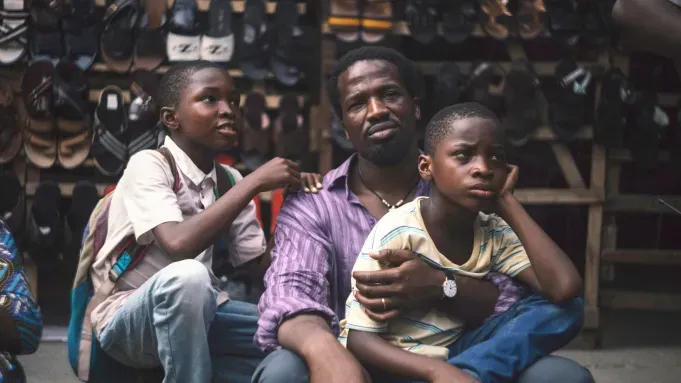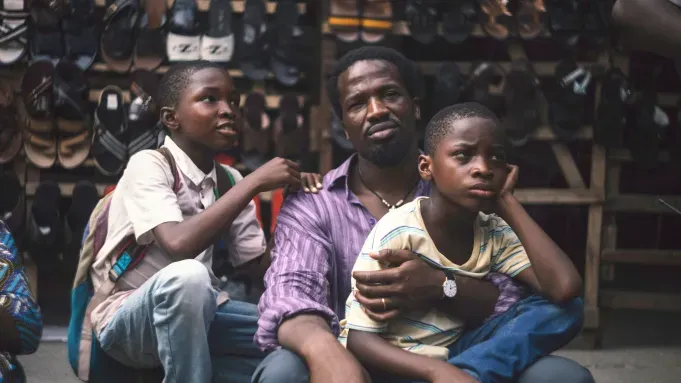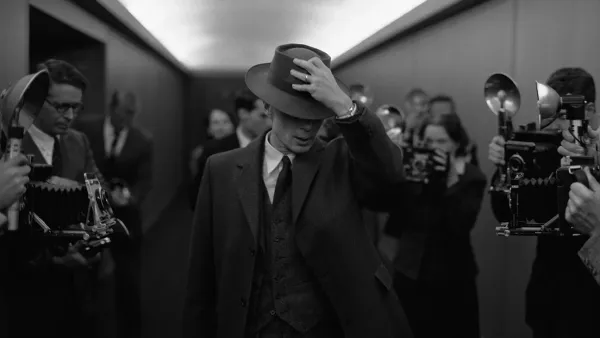My Father’s Shadow | OBSCURAE at Cannes
The best film I watched at Cannes, and, I believe, the one with the brightest year ahead of it.

I had been made aware of the buzz around this film, and it's unique status as the first Nigerian film in official selection at Cannes, but it was a friend I met on a job two weeks ago that DM’d me, after finding out i’d be in Cannes, front-loading his recommendation with, and I quote, “You got tickets for My Fathers Shadow? Akin’s film is getting hyyyyyped and he a good guy I’m sure it will be an interesting film.”
Interesting to say the very least. “My Father’s Shadow” has to be the best film I watched at Cannes, and, I believe, the one with the brightest year ahead of it.
By being specific, the film rocketed into universality - Akinola Davies Jr and his team have spun gold, and if there is any pride for them that I am entitled to have, I have it. This is African and Nigerian artistry and talent at its peak. The visual style is distinct and perceptive, the story is intelligent, subtle and expertly crafted, and every performance was stunning, especially Ṣọpẹ́ Dìrísù as the boys' father.
“My Father’s Shadow” tells the story of two young boys whose father takes them from the bush into the big city (Lagos) for a day of adventure and discovery. The entire film takes place on the day the Nigerian Military “announced the results” of their democratic elections in 1993 — a pivotal time in the country’s history, just a few weeks after the Bonny Camp Massacre.
Many have highlighted the Father-Son aspect of this film, which of course is it’s core — what people downplay is how affecting the coming-of-age aspect of the film is. Through every element at it's disposal, the film crafts a nostalgia trip for a time where your father had all the answers, the world was scary, strange and exciting, you could hold grudges and be angry and learn the right way to be, and you were hyper sensitive to the feelings of the adults around you. We stay at kid height for so much of the film you start to truly sense that you are one of the brothers, looking up and around at Lagos, with all the overwhelm and magic it invokes.
Another clear but subtle aspect of the film is the way it broaches the politics in Nigeria around the early 90’s. All told, this film is quite literally all about that — but without any sense that we have to dip beneath the waves of it or get technical. This is about feeling it - knowing a place without going there, understanding it’s pride, it’s culture, it’s beauty, and wishing for it’s liberation.
The film is a spiritual brother of “I’m Still Here”, in a sense — bringing us a moment in time, from a country you may not have lived in, with families just like ours, trying to live through “heightened tensions”. Normalisation isn’t the word - but it’s the magic of cinema to bring people an experience they can and will never have, as if to say - there was no reason this happened here, and there is no reason it couldn’t happen to you.
The genius of this film, the time it spends on family and heritage and inheritance of ethics, love, and dreams, would be apparent without the final twist — which I will call a twist, even though, if i’d really been paying attention, it actually wasn’t, like, even a little bit — but the final “twist” really is where you’ll get punched in the chest and won’t be able to breathe on your way out of the theatre.
Oscars for everyone.
Also, god invented English so that it would be spoken in Pidgin, it’s simply music.





